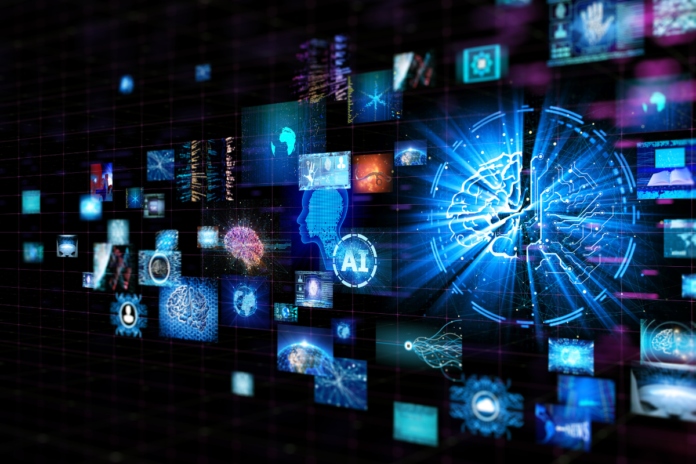As the internet continues to be flooded with AI-generated images, videos, and audio, a new wave of legal disputes may soon emerge, focusing on the unauthorized use of celebrities’ likenesses. In recent news, Scarlett Johansson has taken legal action against AI company Convert Software, alleging the misuse of her facial likeness and an AI-generated voice likeness in a promotional ad for their app, Lisa AI: 90s Yearbook & Avatar. The controversy began when the ad, initially posted on X (formerly Twitter), started with authentic footage of the renowned actress on the set of the movie “Black Widow.”
However, partway through the ad, a transition occurred, shifting from the real video to AI-generated stills, accompanied by an AI-generated voice bearing a striking resemblance to Scarlett Johansson. This transformation was used to promote the Lisa AI app, which offers the creation of AI avatars, videos, and text, an endeavor in which Johansson had no involvement. The ad did little to hide its manipulation, even featuring a disclaimer at the bottom, stating, “Images produced by Lisa AI. It has nothing to do with this person.”
The legal ramifications of such AI-generated likeness use are complex and multifaceted. While the disclaimer attempted to distance the AI content from the actress, Scarlett Johansson and her legal team are resolute in their belief that Convert Software overstepped its boundaries.
The lawsuit raises fundamental questions about the regulation of AI and the boundaries of utilizing digital likenesses in the absence of an individual’s consent. Andrew Tropeano, the host of News Around America, commented on the lawsuit, noting the challenges that smaller AI developers might pose, stating, “AI developers, especially the smaller ones, are going to keep testing the waters as to what is okay until enough legal precedent has been set to stop them.” This highlights the evolving landscape of AI technology and the need for clear legal boundaries.
The legality of AI likeness usage varies by jurisdiction, with many states already having laws in place to address privacy violations and unauthorized use of an individual’s likeness. These laws typically require the subject’s consent for the use of their likeness in commercial contexts or for the purpose of creating misleading or false representations. However, the specific application of these laws to AI-generated content is a relatively uncharted territory, and the Scarlett Johansson lawsuit could set important legal precedents.
It’s essential to recognize that AI technology has the potential to revolutionize various industries and provide innovative solutions. However, the ethical and legal implications of AI-generated content, particularly in situations involving celebrities, are gaining significant attention. The blurred lines between reality and AI-generated content, along with the potential for misuse, make the development of clear regulations a pressing concern.
The outcome of the lawsuit between Scarlett Johansson and Convert Software may have far-reaching implications for the use of AI-generated likenesses. It could establish legal precedents that clarify the boundaries and requirements for obtaining consent when employing AI-generated representations of individuals. This case could also prompt lawmakers to revisit and adapt existing privacy and likeness laws to better address the unique challenges presented by AI technology.
As technology continues to advance, it is imperative for society to strike a balance between innovation and the protection of individuals’ rights and privacy. The Scarlett Johansson lawsuit highlights the urgent need to develop comprehensive regulations and legal frameworks for AI-generated content, ensuring that the technology is used responsibly and ethically, and that individuals’ rights are safeguarded in an increasingly digital world.


